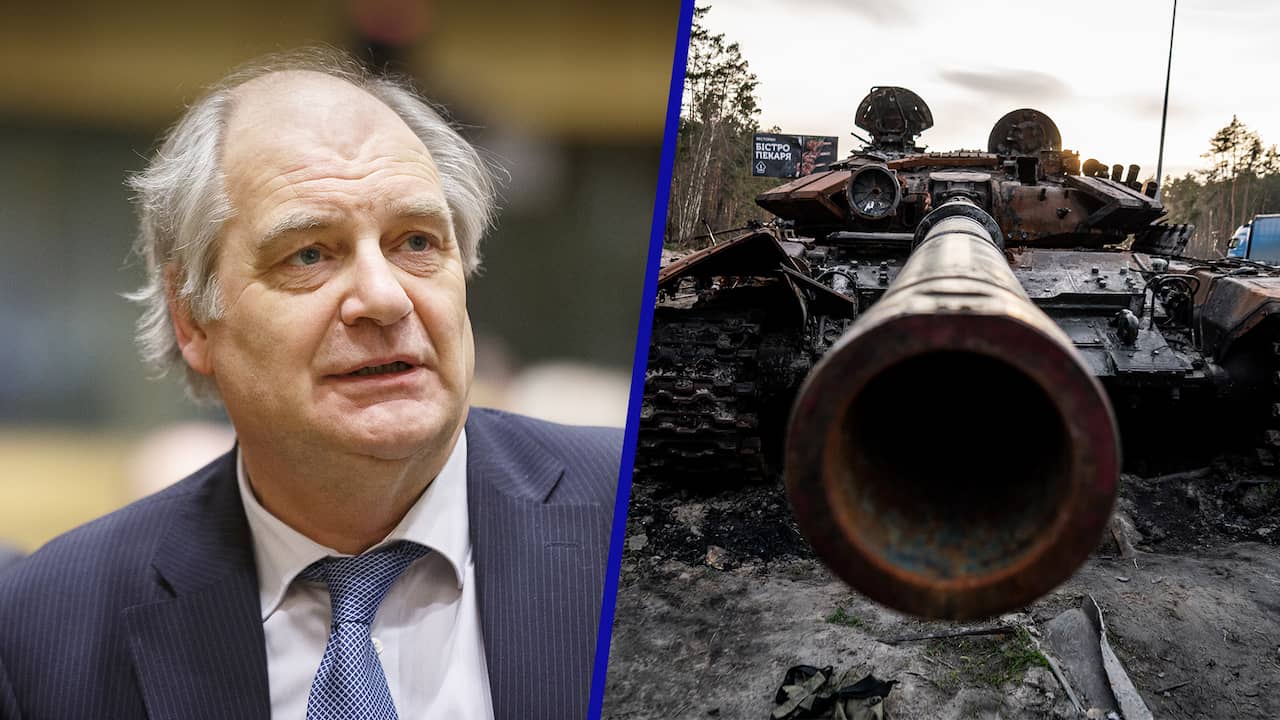Defense expert Ko Colijn has been providing explanations to the Dutch about armed conflicts for over forty years. For NU.nl he follows the battle in Ukraine and answers our (and your) questions. This time: it wouldn’t surprise Colijn if…
…the Ukrainians, who defend their towns in the eastern Donets basin with all their might, hold out for another two weeks. That is what British intelligence predicts and they claim it themselves. The city of Severodonetsk would now not be in Putin’s hands for three quarters, but ‘only’ half. And so the war has been waving up and down for weeks.
More importantly, the Russians continue to fail to surround and ‘strangle’ those cities. As a result, they are forced to the alternative of frontal street fighting. In the long run they lose it and it costs them a lot of men and equipment in any case. The Ukrainian counter-offensives in the south and near Kharkiv are also hand ties for the Russians, making their advance in the core Luhansk region go poorly. If the Ukrainian defenders’ two-week claim is correct, then the western weapons blasting the Russians will arrive in time and the tide will turn for Zelensky.
…behind the scenes there would be threats to send the so-called HIMARS missiles to force the Russians to the negotiating table. These Himars missiles use precision munitions and have a range of about 80 kilometers. That would explain President Biden’s somewhat confusing behavior (no HIMARS Tuesday at first, then yes). I would in any case leave the threat option open, because Putin then has a problem with it: ‘Is this a red line and if so, do I dare to press the red button now?’
…this is being negotiated behind the scenes with the Russians. The Russian military high command now takes up the hotline with the Pentagon, now the Kremlin. I have not read anywhere in the (Dutch) press that less than a week after the invasion – on March 1st – a the conflict agreement between Washington and Moscow is closed. In those early days of the war, that was apparently the top priority of both Russia and the US.
Those were also the days when Israel emphatically set itself up as a ‘mediator’. Israel itself had useful experiences with such a de-conflict agreement with Moscow in Syria: Russian planes stay out of the way when the Israeli air force is active there.
I don’t completely rule out the use of a Russian nuclear weapon as a signal, but I think the chance is very small. In June 2021, Putin and Biden reached an agreement in Geneva that a nuclear war could not be “won” by anyone and that has been a common taboo since Cuba 1962. You can still ‘focus’.
… as well as the wake-up calls of North Korea, Iran and 9/11, nuclear awareness has grown again in the military sector. The media is quite lighthearted about the nuclear weapon and the tough approach to Russia. As if that wouldn’t have a price. One would no longer know what an atomic weapon is. Since roughly 2016, there has also been a heated discussion about modernizing the old generation of nuclear weapons and their practical use (such as Trump’s 2018 Nuclear Posture Review, which was rather loose).
…if the shoulders were shrugged in Washington, when Putin turned on his weapons of mass destruction in March. Subsequently, almost nothing was seen happening in Russia. Bit of Russian bluff poker. A launch of the new Sarmat intercontinental nuclear missile on April 20 has been neatly announced by the Russians in Washington in advance, to avoid any misunderstanding. In late May, Dimitry Rogozin, the chief of the testing program, said another test is likely to be conducted this fall.
…if the current military and politicians do take a nuclear war with Russia seriously. In The Atlantic (is on Biden’s bedside table) a warning recently appeared that the current military and politicians should not think too lightly about a nuclear war with Russia. The ‘humiliators’ and the ‘do-it-yourselfers’ can take that to heart.
…if one is concerned about the technological blurring of the difference between a conventional and nuclear weapon. They are not inferior in appearance to each other and are increasingly intertwined. Trump has equipped a few US submarines with (conventional) medium-range missiles in exchange for (older) nuclear SLBMs after canceling the INF treaty to compensate for the deterrence. But I think that trend is very dangerous, because Russia previously knew exactly which missile would arrive moments later. Not anymore.
It also reassured me in a way that the first thing top military boss Marc Milley did on the infamous January 6, 2021 (the day of the Capitol storming) he grabbed the hotline to Beijing (!) (and I think Moscow) to reassure Chinese colleagues. The US wouldn’t do crazy things, at least the military wouldn’t. A message that apparently landed well, because nothing happened in that area.
In short: the war will go on if the US and Russia want it to, it’s not that Zelensky is alone in deciding whether to renegotiate.
–


